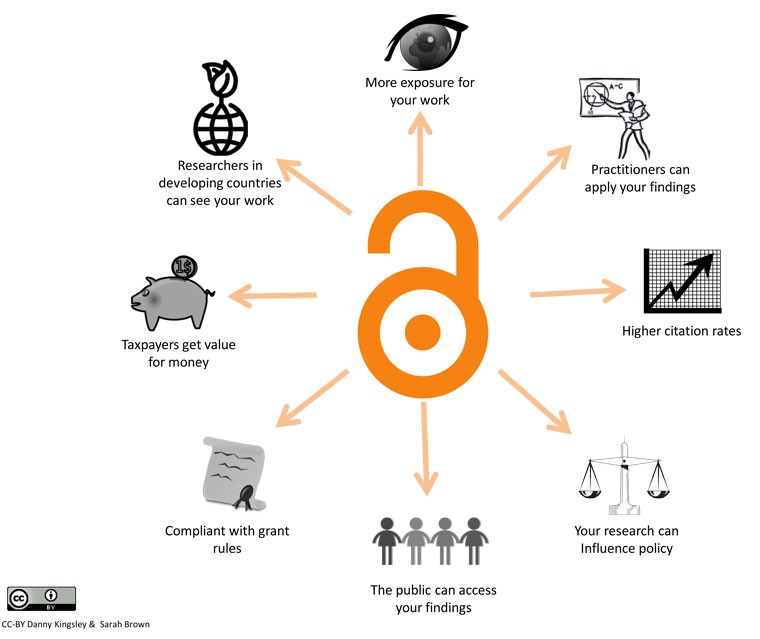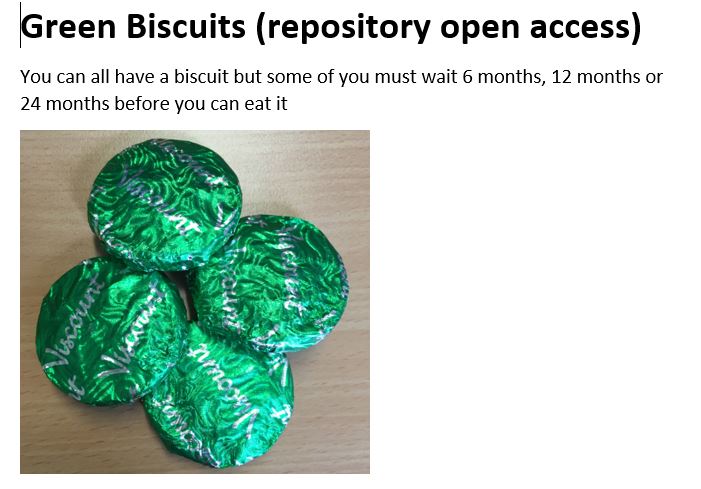Written by Paula Sands, Site and Research Engagement Librarian, Health Services Library, University of Southampton

The theme of this year’s International Open Access Week is “Open for Whom? Equity in Open Knowledge”. The intention, I believe, is to get us thinking about the decisions we make now and how they will impact on future access to our research.
We asked two of our academic colleagues in the Faculty of Medicine what their thoughts were on this theme, their answers below highlight that cost is at forefront of their thoughts and the ability to pay, or not, is a massive barrier.
Professor John Holloway, Associate Dean for Research
Interesting topic. Especially given the up-front costs of open access publishing perhaps putting certain groups at a disadvantage and silencing their voice. For example researchers in LMICs. More junior researchers or visiting fellows where in the past a PI would support them towards writing a paper but now might not because of the cost when there is no budget to pay for this. Will we also get more selective reporting of results as researchers will be reluctant to pay for publications where they feel the impact is low (e.g. negative studies).
Professor Philip Calder, Head of Human Development and Health
Open access is all about free availability of the scientific literature for all who wish to read it. That is obviously a good thing, but it should not be overlooked that someone (the author, their institution, or their funder) is paying a fee (article processing charge or APC) to enable the access. That is, publishing Open Access comes with a cost and often quite a substantial one. Many researchers may not be in a position to pay the APC that enables open access. Thus, they will benefit from open access as readers but not as authors. This is clearly not equitable. There are mechanisms to enable some researchers relief on the APC, but these rely on the goodwill of others. It is important to keep this issue in mind as we increasingly embrace open access.
Funders and institutions are aware of these concerns and initiatives such as Plan S, signed by UKRI, the Wellcome Trust, European Research Council, World Health Organization and many other funders aim to address this at an international level:
With effect from 2021, all scholarly publications on the results from research funded by public or private grants provided by national, regional and international research councils and funding bodies, must be published in Open Access Journals, on Open Access Platforms, or made immediately available through Open Access Repositories without embargo.
https://www.coalition-s.org/about/
What can we do to help you as researchers? The challenge ahead of us is to encourage author self-archiving (also known as repository or green open access) when you publish in subscription journals because it will prevent your work being hidden behind a paywall, at no cost to you, with all the benefits as demonstrated in this infographic below…

Self-archiving does have restrictions imposed by publishers. We touched on this in our Brief Introduction to Open Access blog post yesterday:

Self-archiving (repository/green open access) is where the version of the article in the online journal is only available to subscribers, but (typically) the Accepted Manuscript is self-archived by the author in a subject or institutional repository. The Accepted Manuscript is the version of the article that incorporates all changes resulting from peer review but does not have any publisher markings. The publisher may require an embargo of 6-48 months before the repository version can be made openly available; different publishers have different requirements, and some do not set an embargo at all.
Unfortunately not all publisher self-archiving policies meet funder requirements, either because their required embargoes are too long or because the licence the publisher requires is not in line with the funder requirement. An example of this is Elsevier; for UKRI-funded research, we currently have to pay for gold (from our UKRI open access grant) in Elsevier hybrid journals because the licence they insist on for repository open access (CC BY-NC-ND) does not comply with the less-restrictive CC BY-NC that the funder requires.
If your initial choice of journal is a subscription journal that allows authors to pay for optional open access, they should have a self-archiving policy on their webpages. The suite of SHERPA tools may be helpful if you cannot find the journal self-archiving conditions, or contact us at eprints@soton.ac.uk and we will find the policy for you!
The University of Southampton supports repository open access (our authors upload their articles to Pure which feeds through to ePrints Soton, our institutional repository).
It is also good practice to self-archive a record of all of your journal articles as this increases their discoverability.
My plea to you as an author, please allow your research to be made available via your institutional repository to enable a wider audience to benefit from your work as we strive for equity of access.
